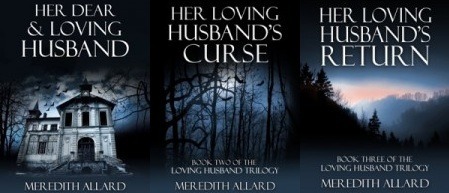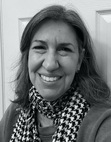How Do You Sell 50,000 Books?
I have no idea. Yet somehow I’ve done it.
Occasionally, someone will ask me how many books I’ve sold, and up until a few weeks ago, my best answer was, “I have no clue.” I check my Amazon rankings on occasion, as most authors do, but I learned a long time ago not to check my sales too often. I found my temperament that day was based on how many books I sold, you know, like when you’re on a diet and your mood is determined by how many pounds you lost—or didn’t. About three weeks ago, I saw my novel Woman of Stones on the Amazon Best Seller list in Inspirational Fiction. I’ve been lucky enough to have had five novels on the Amazon Best Seller lists over the last two years, and suddenly (finally, you might say) I became curious about, well, how many books have I sold? I spent a Saturday afternoon tallying up the figures from Amazon, CreateSpace, and Smashwords, and there it was, over 50,000 copies sold.

The vast majority of my sales have come from The Loving Husband Trilogy.
Sure, there are well-known authors who can sell that many books in a month, a week, a day, even, but for me, as an indie author who started almost out of nowhere, 50,000 works for me. I read somewhere that most indie books sell around 500 copies, so I have no complaints.
My journey into indie publishing is similar to other stories I’ve heard. I had written three historical novels between 1994 and 2007, and I had the same frustrations others do when trying to get published the traditional way. At one point I had an agent who turned out to be less than I hoped for. When I was close to a deal with a major publisher, she decided to switch gears and become a theatrical agent. Which is fine. Really. People change their minds about what careers they want every day. But she didn’t tell me she was no longer a literary agent. She just disappeared. Poof! Gone. It took several weeks to track her down to find out what had happened. God bless any actors who have this woman as their agent. Hopefully she carried through with their contracts before disappearing to become who-knows-what—a potato farmer in Idaho perhaps.
I had to start all over again searching for an agent. The hardest part about the rejection letters for me wasn’t the form letters. Those never bothered me. We send out form letters at Copperfield, so I understand it’s nothing personal. It just means the work isn’t right for that agent or editor for whatever reason. The hard ones to take were the letters that said, “I like your story and I can see your talent, but I don’t know who to sell this to.” What do I do with a comment like that? I would have rather received a form letter.
With my previous three novels, I became frustrated and ended up leaving them aside, never forgotten, but no longer actively pursued. But Her Dear & Loving Husband was different. I wasn’t willing to take no for an answer. I had a sense there was an audience for this book. Around this time (this was 2010-2011) I was reading a lot about the indie author revolution, and I was intrigued. I had previous experience with self-publishing through a pay-for-play company that was less than wonderful, so I was hesitant to go that route again. But self-publishing in 2011 was very different than it was in 2000, and the more I read about it the more I thought self-publishing was something I could do. After all, what’s the harm in trying?
Through my work with The Copperfield Review we created Copperfield Press, and two and a half years later I have six novels published, and between the six novels I have sold more than 50,000 copies and given away more than 100,000 copies. After I made that realization I decided I wanted to share how I’ve been navigating my way along the path of indie publishing. Some of my methods are tried and true, tested by indie authors who came before me. But I’ve always been one to march to the beat of my own drummer, and advice from others doesn’t always work for me.
Over the next few weeks I’ll be sharing what I’ve done (and what I haven’t done) as I’ve joined the indie publishing movement. I’m not an expert on indie publishing, and here’s the big secret that’s really no secret at all—no one is an expert in indie publishing. Indie publishing is one giant experiment, and the more indie authors understand that, the more enjoyable the process can be. I’ve stopped looking at the indie author’s journey as a chore, and I’m hoping I can help others do the same.
Filed under: Publishing, Writing Tagged: Indie Authors, indie publishing, selling e-books, The Loving Husband Trilogy




